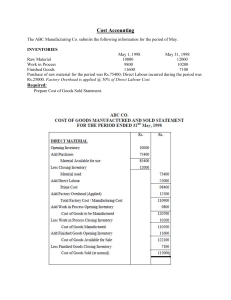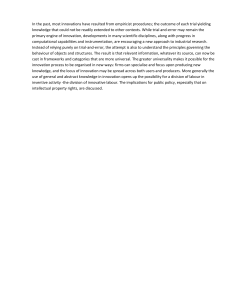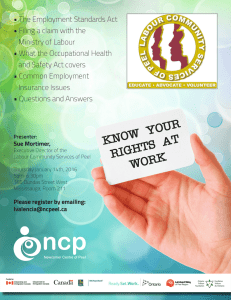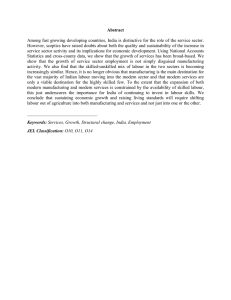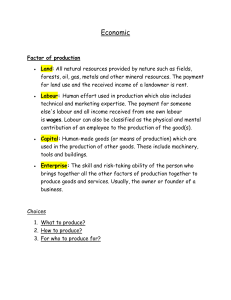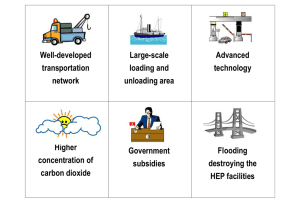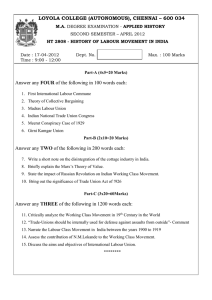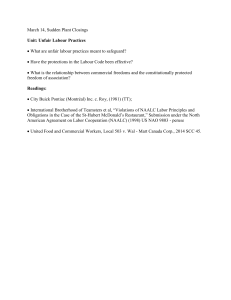Manufacturing & Industrial Location Theory – Chapter 10 • Material Transformation
advertisement
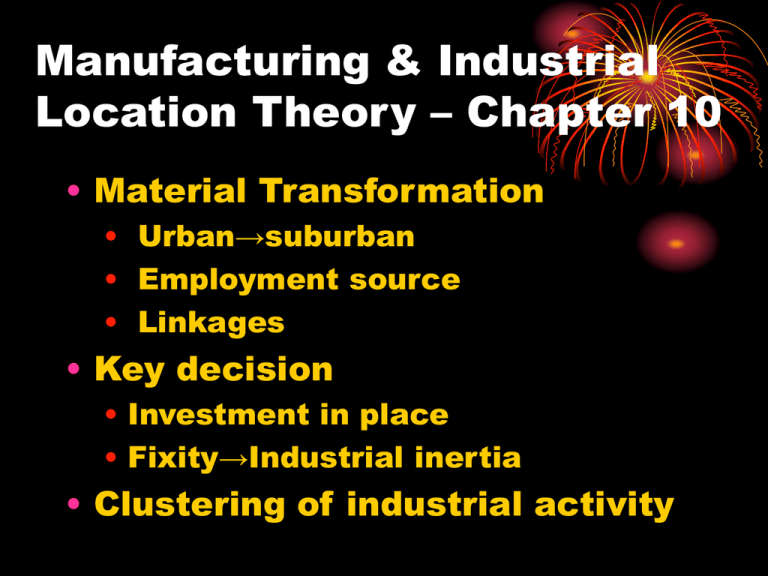
Manufacturing & Industrial Location Theory – Chapter 10 • Material Transformation • Urban→suburban • Employment source • Linkages • Key decision • Investment in place • Fixity→Industrial inertia • Clustering of industrial activity • Corporate Behaviour • Recognition of future production capacity needs • Options to meet future production capacity needs • Adjustment in-situ • Acquisition • New plant expansion • How and who decides? (Org. structure) • Site selection Markets: Demand side factors in industrial location • Market orientation • Final demand: Consumers • Intermediate demand: Industries • Transportation costs • Higher for finished products • Lower for raw materials − (But gross raw materials are weight-losing) Market orientation • Beverages • Perishables • Newspapers (printing) Market orientation • Women’s apparel (garments) • High fashion • Mass production • Agglomeration economies • Components (e.g. auto parts) • Minimum cost location is not always maximum profit location! Production costs • Factor substitution • Labour vs. capital vs. land • e.g. Cattle beef chain • Ranching • Feed lots • Meat packing • e.g. Plastic Moulds • e.g. Hair cuts Labour costs • Labour intensive, unskilled Industrial processes • Textiles • Clothing • Footwear • Low labour cost locations • Urban → rural (or down urban hierarchy) • North → south (U.S.) • Core → periphery • e.g. Novatel - JRC
